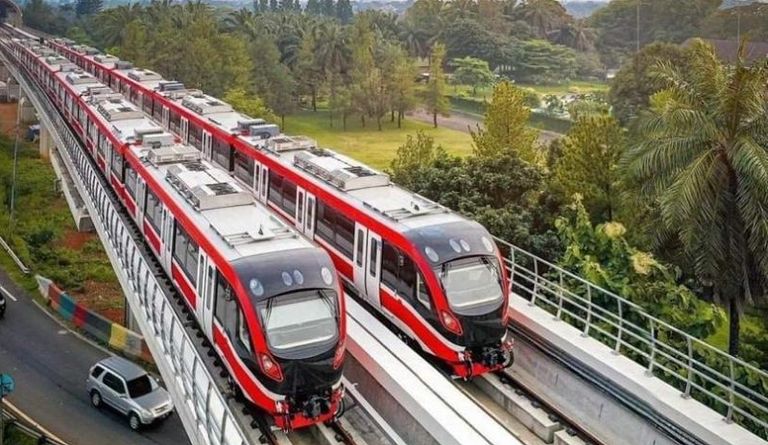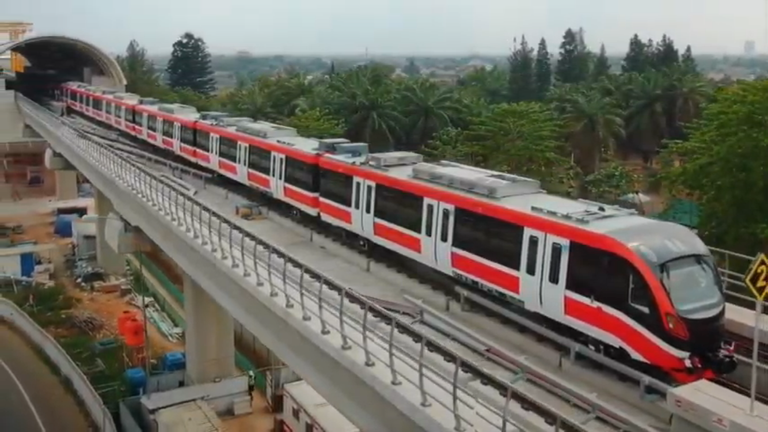
The Jabodebek LRT or Greater Jakarta LRT is a light rapid transit system currently under construction in Jakarta, the capital city of Indonesia, as well as the adjacent areas of West Java, within the Jakarta Metropolitan area. It is being implemented by the central government. To be directly operated by Kereta Api Indonesia (KAI) (rather than by its subsidiary KAI Commuter), the system is planned to connect the Jakarta city center with suburbs in Greater Jakarta such as Bogor, Depok and Bekasi, hence its acronym "Jabodebek".
The Jabodebek LRT is divided into three phases:
Phase 1: This phase is currently under construction and is scheduled to be operational in August 2023. It will consist of 18 stations and 51.7 kilometers of track. The line will connect Cibubur, Cawang, Dukuh Atas, and Bekasi Timur.
Phase 2: This phase is still in the planning stage and is not yet scheduled to be completed. It will consist of 14 stations and 39.1 kilometers of track. The line will connect Cawang, Jatinegara, Kranji, and Cikarang.
Phase 3: This phase is also still in the planning stage and is not yet scheduled to be completed. It will consist of 10 stations and 25.5 kilometers of track. The line will connect Cawang, Halim Perdanakusuma, and Karawang.

The Jabodebek LRT is expected to provide a much-needed transportation solution for the Jakarta Metropolitan area. The system is expected to carry up to 300,000 passengers per day, which will help to reduce traffic congestion in the region.
Here are some of the key features of the Jabodebek LRT:
- It will be a fully automated system, with no drivers required.
- It will be powered by electricity, making it a more environmentally friendly option than other modes of transportation.
- It will have a maximum speed of 80 kilometers per hour, making it a fast and efficient way to travel.
- It will be integrated with other modes of transportation, such as the Jakarta MRT and the KRL Commuter Line.
The Jabodebek LRT is a major infrastructure project that is expected to have a significant impact on the Jakarta Metropolitan area. The system is expected to reduce traffic congestion, improve air quality, and provide a more efficient and environmentally friendly way to travel.
Infrastructure is always costly, but it will increase our quality of life. The light rapid transit is a nice addition to the existing Jakarta's mass transportation such as mass rapid transit, commuter line and bus rapid transit.
** Your post has been upvoted (30.29 %) **
Curation Trail is Open!
Join Trail Here
Delegate more BP for bigger Upvote + Daily BLURT 😉
Delegate BP Here
Upvote
https://blurtblock.herokuapp.com/blurt/upvote
Thank you 🙂 @tomoyan